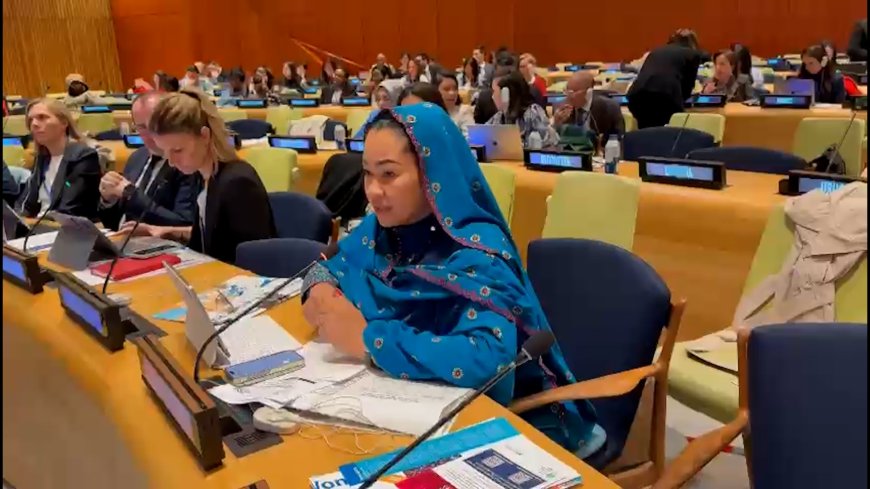"Silenced Voices: The Struggle for Women's Rights in Nigerian Politics"
Explore the challenges faced by women in Nigerian politics as male politicians exhibit arrogance and disregard for their voices. This article delves into the recent controversy involving Senate President Godswill Akpabio and Senator Natasha Akpoti-Uduaghan, highlighting the urgent need for reform and inclusivity in the political landscape.

In Nigeria, the political landscape often stifles the voices of women politicians, contributing to a culture where male politicians exhibit a striking arrogance and a troubling lack of respect.
This environment is steeped in patriarchal norms that not only undermine the principles of democracy and mutual respect but also reflect poorly on the integrity of public leadership. The behavior of these male leaders reveals an uncultured demeanor that is increasingly unacceptable in a modern democratic society.
A particularly troubling incident recently highlighted this dynamic: Senate President Godswill Akpabio found himself at the center of controversy involving Senator Natasha Akpoti-Uduaghan. Senator Akpoti-Uduaghan publicly accused Akpabio of sexual harassment, presenting serious allegations that clearly warranted a thorough investigation.
However, instead of facilitating a proper inquiry into the claims, the Senate President denied the allegations and opted for punitive measures against Akpoti-Uduaghan. She was suspended for six months without pay, and all her security aides were withdrawn. In a subsequent video, Akpabio affirmed her suspension, reiterating the Senate's decision without addressing the gravity of the accusations.
This course of action exemplifies a disturbing power play that not only silences women in politics but also further entrenches gender inequality within the political sphere. Such incidents are indicative of a broader societal issue in Nigeria, where women's voices are frequently marginalized, and the aggressive behavior of male politicians is not only tolerated but often overlooked.
The erratic and confrontational demeanor displayed by figures like Akpabio during these exchanges not only illustrates a lack of maturity but also perpetuates an environment where women face unfair targeting and intimidation. This blatant power imbalance is unacceptable and underscores the urgent need for reform within Nigeria's political framework.
It is imperative that we advocate for a political culture that fosters inclusivity, allowing all politicians—regardless of gender—to engage in respectful dialogue and ensuring that everyone is held accountable for their actions.
For Nigeria to progress, it must commit to establishing norms that uphold civility and respect in political discourse, thereby empowering women and promoting a truly representative democracy.







